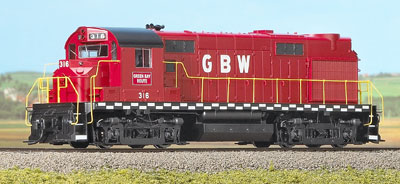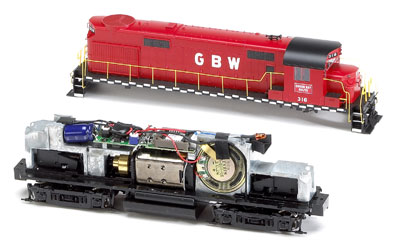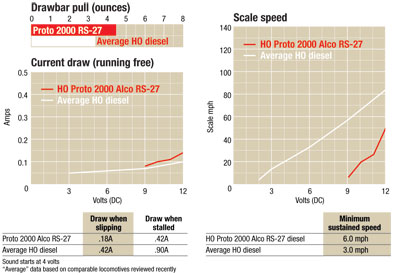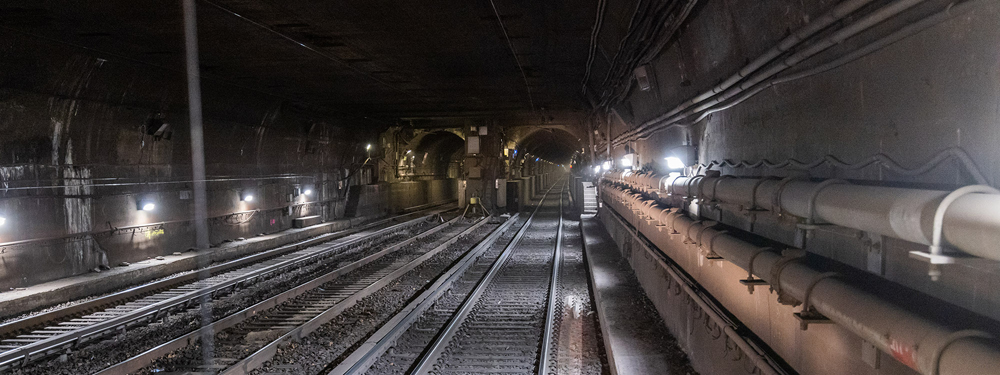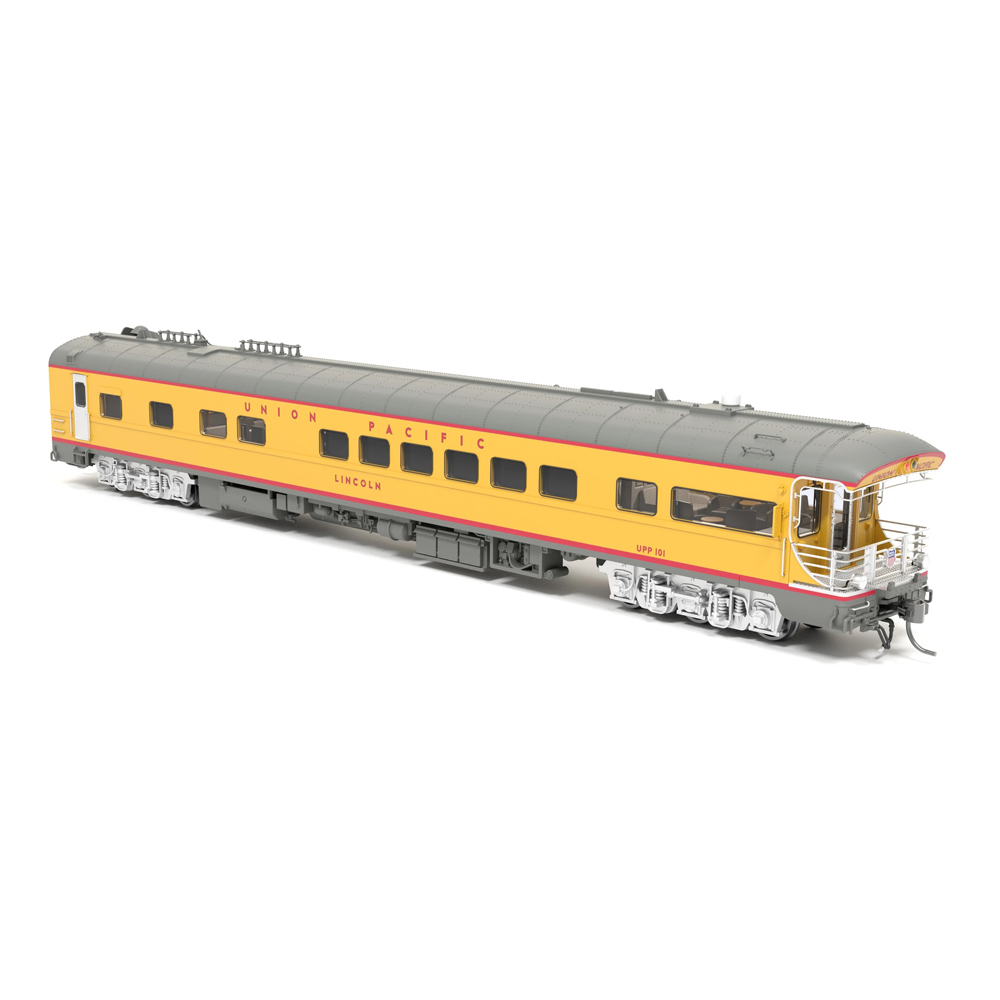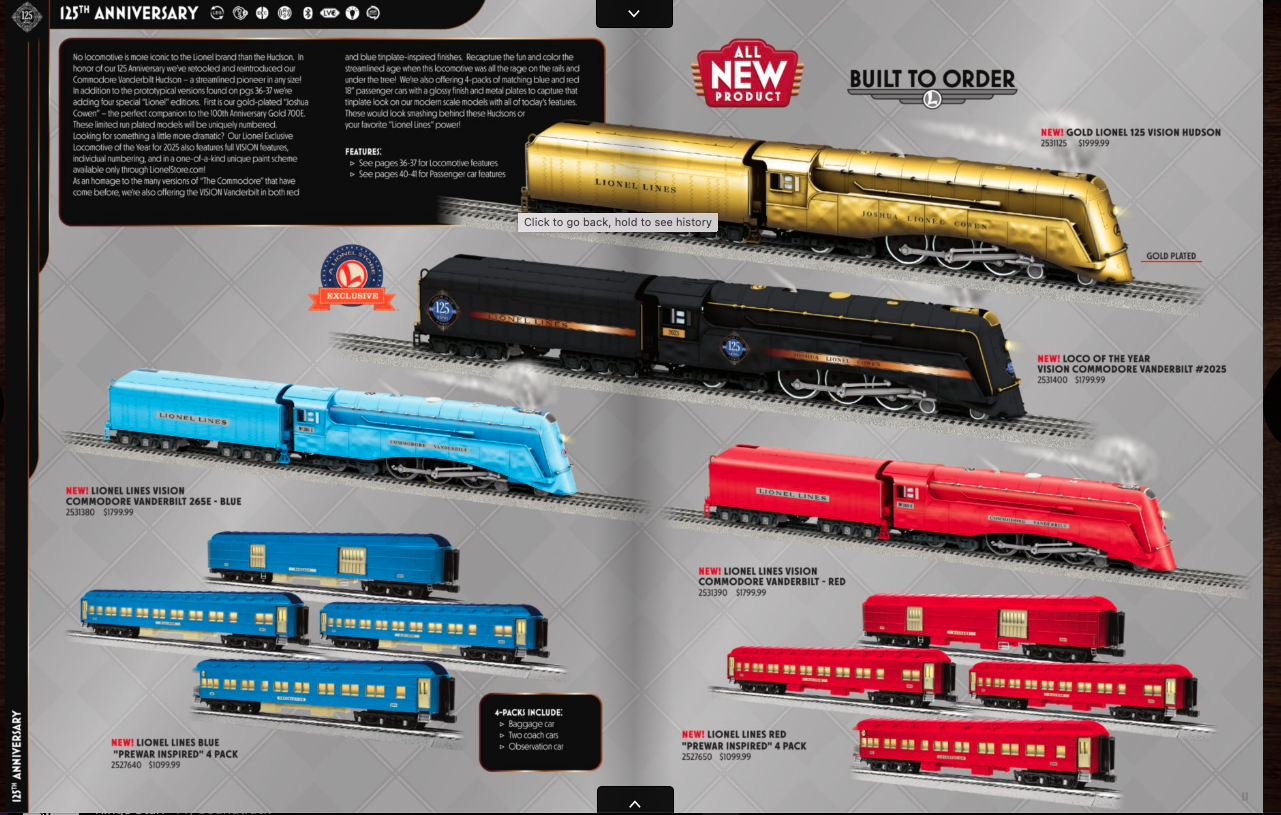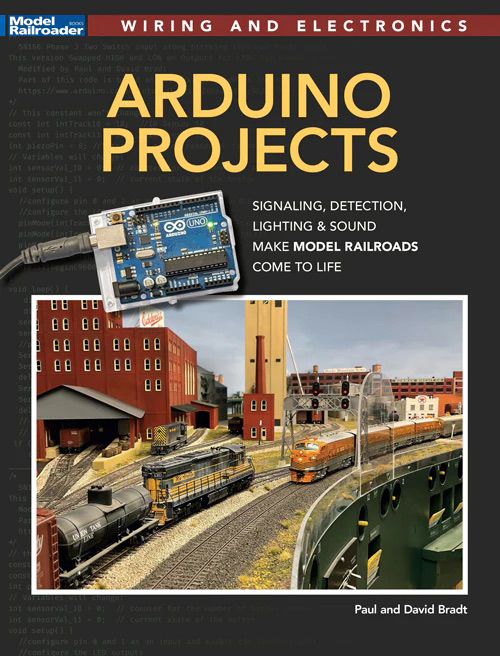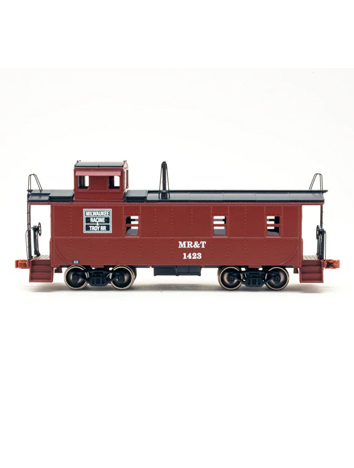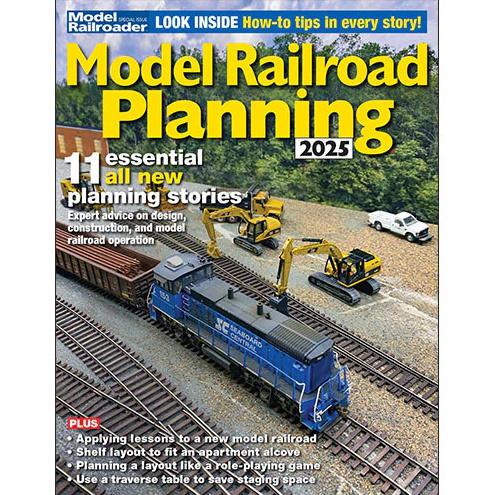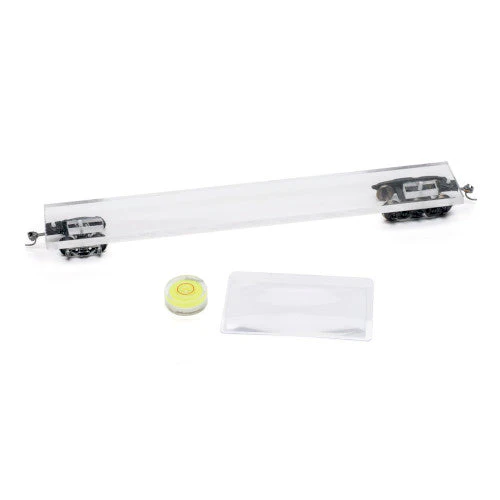DC layouts.
A powerful prototype. The RS-27, also known by its DL640 specification number, was Alco’s 2,400-h.p. competitor to Electro-Motive’s 2,000-h.p. GP20. It was introduced in 1959, but only 27 units were built for five railroads: the Pennsylvania RR (15), Chicago & North Western (4), Union Pacific (4), Soo Line (2), and Green Bay & Western (1). One was retained by Alco.
This B-B locomotive used a 16cylinder model 251B diesel engine that required a longer hood than its 12-cylinder predecessors, forcing the cab closer to the front end. This resulted in the stubby short hood with notched corners that is the RS-27’s primary spotting feature.
Our sample matches the prototype drawing in the Model Railroader Cyclopedia – Volume 2: Diesel Locomotives (Kalmbach Publishing Co.).
The model. The RS-27 is offered with prototype-specific details. It follows the same design used in previous Proto 2000 models. The finely detailed styrene body shell is made up of four pieces that include the long hood, nose, cab, and a walkway-sill-pilot assembly (with or without drop steps). The steps and footboards have see-through treads, and the models have an appropriate large or small fuel tank. More than 60 individual detail parts are factory applied. A package of optional details is also provided, including m.u. receptacles, sunshades, and cab window boxes.
This model has some of the best molded acetal railings I’ve seen with appropriate cross-sections about a scale inch in diameter (.013″). The color is molded in.
Our Green Bay & Western sample has a smooth finish with sharp lines between the various colors. The red color is right on, and all of the intake screens are finished in black. The lettering is cleanly printed right down to the checkerboard sill markings.
The motor and flywheels sit in a recess in the middle of the die-cast metal frame with a printed-circuit (PC) board on top. A die-cast A-frame straddles the universal shaft just ahead of the motor. On sound-equipped models, the A-frame holds a pair of inward-facing speakers. On DC models the speakers are omitted, but the A-frame remains as part of the weight. Zinc alloy weights fill most of the remaining interior space to add traction.
The RS-27 rides on Association of American Railroads standard type B trucks that are excellently detailed, right down to the hand- brake chains. The drivers are blackened nickel-silver with RP-25 contours. The wheels are mounted on stub axles pressed into plastic gear hubs, and each wheelset matches the National Model Railroad Association standards gauge. All the axles are powered and contacts concealed in the sideframes pick up current from all the drivers.
Performance. Our initial RS-27 sample had an internal electronic problem that kept shutting it down. In keeping with the model’s limited lifetime warranty, Life-Like replaced it with one that runs perfectly.
Due to the QSI Quantum sound system’s power requirements, on DC the sound starts at 4 volts and the model begins to move at 9 volts. The locomotive ran steadily at 6 scale miles per hour and reached a maximum speed of 50 mph. That’s close to one of the speed ranges offered on the prototype. On DCC, the starting speed is also 6 mph but with a top speed of 85 mph.
The RS-27 also includes the Quantum Analog Remote Control (QARC) system to operate the model’s DCC features on DC.
Its 2.9-ounce drawbar pull is equivalent to 40 free-rolling freight cars on straight and level track.
The buyer has to install the couplers, which are mounted at the correct height.
The sound effects are realistic on both DC and DCC, starting with the characteristic idling Alco engine and intermittent air releases. As the throttle is increased, the sounds rev up and increase in volume. The system reproduces a range of other sound effects, including a bell, brake squeal, and an air horn.
A comprehensive 20-page manual explains everything an operator needs to know about locomotive operation and adjustments for both DC and DCC use. This manual also explains the fine-tuning possible with the DCC configuration variables and volume and momentum adjustments.
This Proto 2000 RS-27 is a great-looking road switcher that runs well and sounds like a working Alco.
Price: $265.00 with sound and DCC, $165 DC only version
Manufacturer
Life-Like Products
Division of Wm. K. Walthers, Inc.
5601 W. Florist Ave.
Milwaukee, WI 53218-1622
www.walthers.com
Description
Plastic and metal ready-to-run diesel locomotive
Road names (all paint schemes are offered with or without DCC and sound in two unit numbers each): Alco Demonstrator (all four unit numbers in the maroon, gray, and yellow), Chicago & North Western, Penn Central, Pennsylvania, Soo Line, Union Pacific, and undecorated
All-wheel drive and electrical pickup Blackened metal RP-25 contour wheels (correctly gauged)
Constant directional headlights
DCC version includes dual mode decoder with QSI Quantum sound system that operates on both DC and DCC systems
DC-only version includes NMRA 8-pin socket for DCC decoder
Drawbar pull: 2.9 ounces
Engine weight (DCC): 14 ounces
Five-pole skew wound motor with dual brass flywheels
Illuminated number boxes
Minimum radius: 18″
Proto 2000 magnetic knuckle couplers (correct height)
Prototype-specific details





